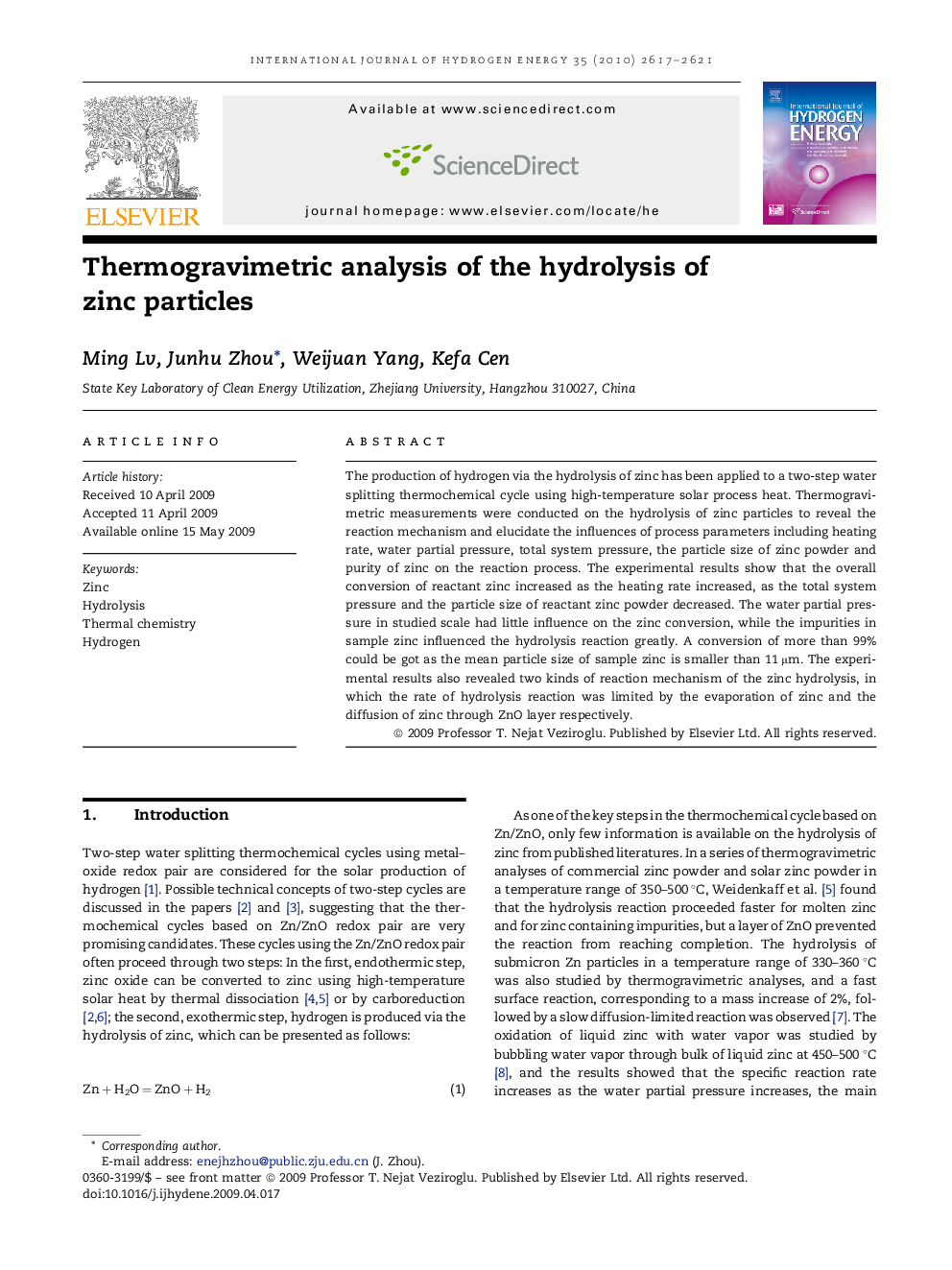| Article ID | Journal | Published Year | Pages | File Type |
|---|---|---|---|---|
| 1273224 | International Journal of Hydrogen Energy | 2010 | 5 Pages |
The production of hydrogen via the hydrolysis of zinc has been applied to a two-step water splitting thermochemical cycle using high-temperature solar process heat. Thermogravimetric measurements were conducted on the hydrolysis of zinc particles to reveal the reaction mechanism and elucidate the influences of process parameters including heating rate, water partial pressure, total system pressure, the particle size of zinc powder and purity of zinc on the reaction process. The experimental results show that the overall conversion of reactant zinc increased as the heating rate increased, as the total system pressure and the particle size of reactant zinc powder decreased. The water partial pressure in studied scale had little influence on the zinc conversion, while the impurities in sample zinc influenced the hydrolysis reaction greatly. A conversion of more than 99% could be got as the mean particle size of sample zinc is smaller than 11 μm. The experimental results also revealed two kinds of reaction mechanism of the zinc hydrolysis, in which the rate of hydrolysis reaction was limited by the evaporation of zinc and the diffusion of zinc through ZnO layer respectively.
